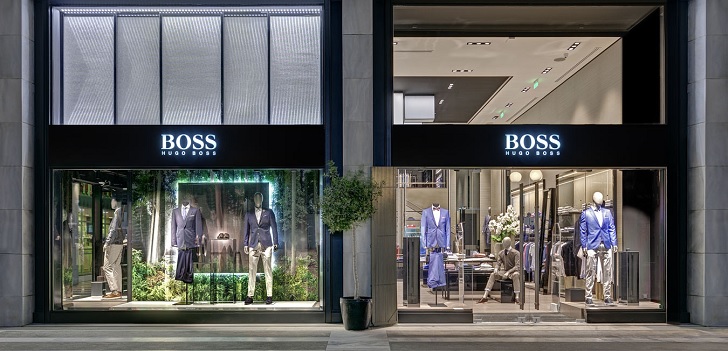Hugo Boss, king of transparency: beats LVMH and Kering in eco responsibility
In the top ten most transparent luxury company, Hugo Boss really shows who is the boss as it leads the ranking with the highest score against companies such as Louis Vuitton, Dior, Fendi, and many more.

Hugo Boss on the path to clearing its name. The German luxury fashion company leads the board as the most transparent group out of ten other luxury fashion names in the sector. The outcome of this ranking is the result of a study conducted by Fashion Revolution, Fashion Transparency Index 2019. The study assesses the 200 biggest fashion brands and ranks them in polls according to their rates.
The companies are assessed based on 5 key elements, the first key being policy&commitment; second, governance; third, traceability; fourth, know, show&fix; and fifth, spotlight issues. The average score of the top ten luxury brands is 32.6%, Hugo Boss, scored 41% and although the German company has quite a margin between its rate and the average score of top the ten companies, there is still room for much improvement.
The top ten luxury brands have an average score of 32.6% in transparency
The German brand appears in the range of 41%-50%, meaning that brands appearing in this sector are more likely to publish their detailed supplier list. Additionally, information regarding processing facilities as well as manufacturers would be published, detailed information about their policies, procedures, social and environmental goals, supplier assessment finding, remediation processes, and some supplier assessment findings. The brands in this segment will also address topics concerning gender pay gaps, capacity building for female supply chain workers, collective bargaining, textile waste, and circular resources and disclosing their carbon and water footprint.
The following segment is that of 31%-40%, the brands featuring in this division are the ones who publish suppliers list as well as detailed information about their policies, procedures, social and environmental goals, supplier assessment and remediation processes, as stated by the report. The division also features brands that are penchant to reveal data of a few Spotlight Issues such as capacity building for female supply chain workers, collective bargaining, textile waste, and recycling, along with carbon emissions
Gucci, which missed the 41%-50% range by 1 point and landed in the 31%-40% segment with the highest score of 40%. In this score range also feature companies such as Bottega Veneta with 39%, Yves Saint Laurent, with 37%, Burberry with 33% and Hermès closing the band with a score of 31%.
The last segment to feature the tenth most transparent luxury fashion company is categorized as 21%-30%. This segment features brands that aren’t keen on supplying a fully detailed list of their suppliers, they’d reveal the factory and address. However, they are more likely to facilitate access to their policies, procedures, social and environmental goals and supplier assessment and remediation process. They also not very outspoken regarding Spotlight Issues but may mention them.
In the segment of 21%-30%, it’s two brands of LVMH that lead the board, Dior and Louis Vuitton tied with a score of 22%. They are followed by the American Ralph Lauren, and in the tenth position closing the ranking is the Italian Fendi, with a score of 21%.


info@themds.com
Validation policy for comments:
MDS does not perform prior verification for the publication of comments. However, to prevent anonymous comments from affecting the rights of third parties without the ability to reply, all comments require a valid email address, which won’t be visible or shared.
Enter your name and email address to be able to comment on this news: once you click on the link you will find within your verification email, your comment will be published.